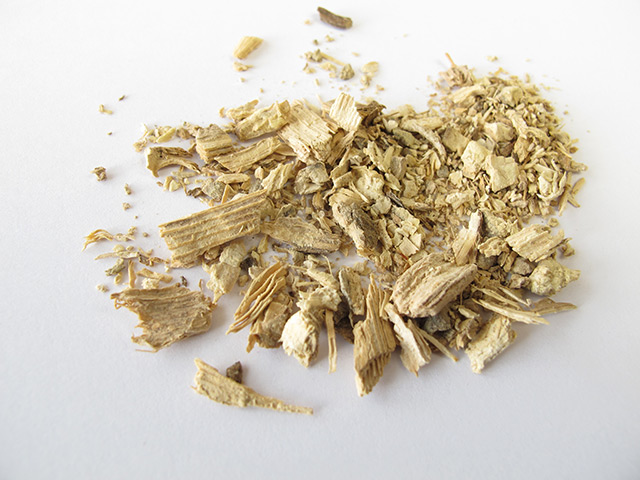Nourishing the gut to nurture the mind: How plant-based foods support children with autism
04/20/2025 / By Olivia Cook

- The gut-brain axis (GBA) is a communication pathway between the gastrointestinal (GI) tract and the brain, playing a key role in behavior, cognition and mood in individuals with ASD.
- Foods with in antioxidants, dietary fiber, omega-3 fatty acids and polyphenols can promote beneficial gut bacteria linked to reduced inflammation and better brain function.
- Berries, green tea, flaxseeds, legumes, leafy greens, seeds and turmeric contain bioactive compounds shown to positively influence behavior, memory and mood.
- While dietary changes alone cannot replace medical care or therapy, they can be a valuable, supportive piece of the puzzle in ASD management.
- Introducing gut-friendly, plant-based foods can be a gentle and empowering step for families seeking natural and affordable ways to support their child’s development and day-to-day well-being.
When a child is diagnosed with autism spectrum disorder (ASD), parents are often thrust into a whirlwind of decisions, emotions and questions. While no single food can “cure” autism, growing research suggests that the gut and brain are deeply connected and what a child eats may have a meaningful impact on their behavior, mood and even development.
This article, based on a comprehensive review published in Food Frontiers (2021), explores how plant-based nutrients (bioactives) – from colorful berries to flaxseeds, leafy greens and legumes – can help support not only a healthy gut microbiome but also cognitive function, emotional regulation and overall well-being in children with ASD. With hope, science and practical guidance in hand, families can feel empowered to make nourishing choices that may support their children from the inside out.
Plant-based bioactives refer to a wide range of naturally occurring compounds found in fruits, herbs, nuts, seeds, vegetables and other plant-based foods. These compounds, which include alkaloids, bioactive peptides, dietary fiber, omega-3 fatty acids, polyphenols, polysaccharides and other phytochemicals, have been shown to influence human health in numerous ways – boosting the immune system, improving heart health and preventing chronic diseases. They also play a crucial role in regulating gut microbiota – the trillions of bacteria that inhabit our digestive system.
By fostering a healthy gut environment, these compounds can help balance the gut microbiota and, in turn, improve communication between the gut and brain. This is especially significant for individuals with ASD, whose gut microbiome is often found to be imbalanced, contributing to various cognitive, emotional and social challenges.
The gut-brain axis in ASD
ASD is often associated with disruptions in both brain and gut health. Individuals with ASD frequently experience gastrointestinal (GI) issues, like abdominal discomfort, constipation and diarrhea, which can further complicate behavioral and cognitive symptoms. These gut issues are linked to an imbalance in the gut microbiota (dysbiosis), which can lead to chronic inflammation, immune dysfunction and alterations in neurotransmitter regulation – all of which can exacerbate ASD symptoms.
The gut-brain axis (GBA), which is the communication network between the GI system and the central nervous system (CNS), plays a pivotal role in regulating behavior, cognition and mood. When the balance of the microbiome is disturbed, it can affect this communication, leading to issues with anxiety, focus, memory and even social interaction.
Therefore, managing gut health through dietary intervention has emerged as a promising strategy for improving ASD symptoms. (Related: What you eat affects how you think: The connection between your gut and your brain.)
Effects of specific plant bioactives on ASD
Now, let’s delve deeper into how specific plant-based bioactives can impact the GBA and potentially alleviate ASD symptoms.
- Polyphenols: A diverse group of plant compounds, polyphenols have been extensively studied for their potential neuroprotective and anti-inflammatory properties. Anthocyanins, found in blueberries and other dark fruits, have been shown to enhance cognitive function and reduce neuroinflammation by modulating gut microbiota. For example, blueberry extracts rich in anthocyanins have been linked to an increase in beneficial gut bacteria, such as Lactobacillus and Bifidobacterium, which are associated with improved brain health. Studies also suggest that quercetin, another polyphenol found in apples and onions, may reduce oxidative stress and promote a balanced mood. Additionally, catechins, particularly those found in green tea, have been shown to improve cognitive performance, especially in areas like attention and working memory, which are often impaired in individuals with ASD.
- Omega-3 fatty acids: Omega 3s, especially those found in plant-based sources such as chia seeds, flaxseeds and walnuts, are essential for brain development and function. These healthy fatty acids, particularly EPA and DHA, are involved in neurogenesis (the brain’s ability to create new nerve cells or neurons, especially in areas linked to learning and memory), neurotransmitter regulation and inflammatory modulation. Research has shown that omega-3 supplementation can improve symptoms of ASD, such as hyperactivity, irritability and social withdrawal. Omega-3s are also known to influence gut microbiota composition, promoting the growth of beneficial bacteria that support brain health.
- Polysaccharides: Inulin, a polysaccharide found in foods like asparagus, bananas and onions, acts as a prebiotic, stimulating the growth of beneficial gut bacteria. By improving gut microbiota composition, inulin helps reduce inflammation, which is often elevated in ASD. Research suggests that inulin may help modulate the GBA and influence brain-derived neurotrophic factor (BDNF) expression, a key protein involved in neuroplasticity (the brain’s ability to reorganize and form new neural connections throughout life) and brain function.
- Dietary fibers. Fiber-rich foods, such as fruits, legumes, vegetables and whole grain, provide more than just digestive benefits. Fibers, particularly prebiotics like polysaccharide inulin, serve as food for beneficial gut bacteria. A healthy microbiome is critical for maintaining balanced GBA signaling, which, in turn, supports cognitive function and emotional regulation. Studies suggest that individuals with ASD often have a less diverse microbiome and introducing more fiber-rich plant foods may help restore gut balance, potentially improving symptoms, such as inattention and irritability.
- Bioactive peptides and alkaloids: Found in plant-based proteins like beans and lentils, bioactive peptides are smaller fragments of proteins that have been shown to support gut health, regulate mood and even enhance cognitive function. Alkaloids, such as berberine from plants like Goldenseal, may also influence the microbiome by promoting the growth of beneficial bacteria while reducing harmful strains.
The effects of plant-based bioactives on the GBA are mediated through several mechanisms, including the following:
- Microbiome modulation: Plant bioactives can directly influence the composition of gut microbiota. By promoting the growth of beneficial bacteria, such as Bifidobacterium and Lactobacillus, and inhibiting the growth of pathogenic microbes, these bioactives can restore gut health and improve communication with the brain.
- Anti-inflammatory effects: Chronic inflammation is a hallmark of ASD and plant bioactives, like polyphenols and omega-3 fatty acids, can reduce inflammation by modulating immune responses. This reduction in inflammation may alleviate some of the neurobehavioral symptoms of ASD, such as irritability and social deficits.
- Antioxidant properties: Many plant bioactives, including anthocyanins and catechins, have strong antioxidant properties that protect the brain from oxidative stress. By scavenging free radicals and reducing oxidative damage, these bioactives may help protect neurons from degeneration and support cognitive function.
- Neurotransmitter regulation: Bioactives, such as omega-3 fatty acids are involved in the regulation of neurotransmitters like serotonin and dopamine. These neurotransmitters are crucial for cognition, mood regulation and social behavior – all of which are commonly impaired in individuals with ASD.
Watch this video to learn more about the connection between autism and the microbiome.
This video is from the Daily Videos channel on Brighteon.com.
More related stories:
Gut-brain connection in individuals with autism CONFIRMED by scientific data.
Sources include:
Submit a correction >>
Tagged Under:
dietary intervention, dysbiosis, gut health, gut microbiome, gut-brain axis, gut-brain connection, microbiome modulation, neurotransmitter regulation, omega 3, plant bioactuves, polyphenols
This article may contain statements that reflect the opinion of the author


















